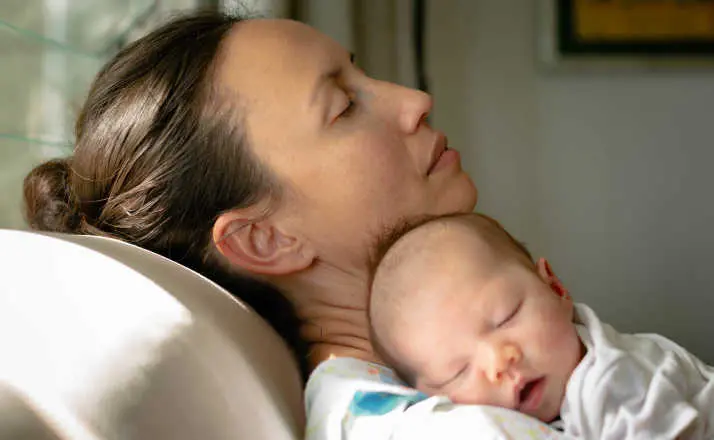Having a baby is a wild, crazy ride. It’s a whirlwind of emotions and changes. And while those first few months are filled with some pretty awesome moments, there are darker moments as well.
The reality is that navigating the first few months is challenging, psychologically and physically, nevermind the mind-numbing exhaustion.
And sometimes those dark moments, the ones we tend to hide away from the world, overshadow the light.
No one wants to talk about postpartum depression. But we should. We have to. Because for so many women, postpartum depression is a harsh reality.
And now, in the first global study of its kind, researchers are shining a much-needed light on what is too often shrouded in darkness.
With the help of the Flo app, researchers from the Johns Hopkins School of Medicine in Baltimore surveyed 1.1 million women from 138 countries to determine the most common risk factors for maternal depression.
The study was published in the March 15 issue of the Journal of Affective Disorders.
Women using the Flo app answered a survey (available in 10 languages) from January 2018 to April 2020.
The “After Childbirth Survey” was sent to users within 3 months of the user reporting delivery of her infant(s).

Answers to the question, “How would you describe your emotional state after giving birth?” were used to determine the presence of postpartum depression symptoms.
Respondents had the following options:
- “I am in high spirits.”
- “I can characterize my condition as emotionally stable.”
- “I am experiencing mood swings.”
- “I am experiencing anxiety, irritability, dissatisfaction.”
- “I feel sad, hopeless, helpless, useless, I am scared for my child, I have feelings of guilt and shame.”
- “No emotions at all, I feel disconnected, emotionally exhausted with no energy to take proper care of my child.”
The goal of the study was to evaluate the association between maternal age, parity, gestational number (singleton vs twin), newborn gender and self-reported postpartum depressive symptoms (PDS).
So what did they find?
What they discovered is that first-time mothers, twin mothers, and young mothers are most at risk for postpartum depression.
They concluded the following:
- First-time mothers reported higher rates of depressive symptoms than women with prior children.
- Twin births were associated with a higher symptom burden than singleton births.
- Mothers aged 40 and older who had twins were at particularly high risk.
- Mothers under the age of 25 are at higher risk for PDS.
- There was not a clinically significant difference in depressive symptoms between mothers of singleton girls and boys.
Of the 1.1 million participants, 9.4% reported maternal depression symptoms.
This is actually well below the statistics for the United States. According to postpartumdepression.org, 20% of women will experience PPD. That’s 1 in 7. Over 600,000 mamas suffer each year.
In fact, some medical experts believe that the rate is actually double this as it often goes undiagnosed.
Additionally, suicide is the leading cause of death for women for the first year postpartum.
This is sobering.
PPD rarely looks the same for every woman. And too often, it just gets shrugged off as the “baby blues.”
However, there are signs to look out for:
- Excessive crying for long periods of time for seemingly no reason.
- Intense anxiety, worry, and fear that make it difficult to perform daily tasks.
- Feelings of shame, guilt, or hopelessness.
- Feelings of anger, irritability, or rage.
- Withdrawing from loved ones.
- Feeling numb or disconnected from the baby.
- Unable to focus or concentrate.
- Forgetting things easily.
- Loss of interest in things she used to love.
- Thoughts of self-harm or hurting her child.
The good news is that postpartum depression can be treated.
The researchers are hoping that their study will help clinicians caring for new mothers.
Knowing who is at higher risk for developing postpartum depression will hopefully lead to better screening and intervention.
And happier, healthier mothers.
If you or someone you know is experiencing symptoms of postpartum depression, anxiety, OCD, and/or another perinatal mood disorder, there is help available. Reach out to Postpartum Support International at 1-800-944-4773. For immediate assistance, contact your physician, OB/GYN, and/or call 911.











